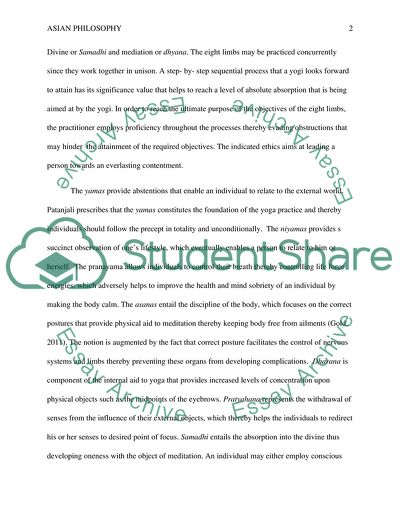Cite this document
(The Patanjalis Ethics Assignment Example | Topics and Well Written Essays - 1250 words, n.d.)
The Patanjalis Ethics Assignment Example | Topics and Well Written Essays - 1250 words. https://studentshare.org/philosophy/1830515-asian-philosphy
The Patanjalis Ethics Assignment Example | Topics and Well Written Essays - 1250 words. https://studentshare.org/philosophy/1830515-asian-philosphy
(The Patanjalis Ethics Assignment Example | Topics and Well Written Essays - 1250 Words)
The Patanjalis Ethics Assignment Example | Topics and Well Written Essays - 1250 Words. https://studentshare.org/philosophy/1830515-asian-philosphy.
The Patanjalis Ethics Assignment Example | Topics and Well Written Essays - 1250 Words. https://studentshare.org/philosophy/1830515-asian-philosphy.
“The Patanjalis Ethics Assignment Example | Topics and Well Written Essays - 1250 Words”. https://studentshare.org/philosophy/1830515-asian-philosphy.


